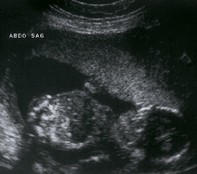Peer Reviewed
Feature Article Genetics
Prenatal screening for Down syndrome: the past, present and future
Abstract
This article traces the development of prenatal screening programs for Down syndrome from maternal age to second and then first trimester screening. Future possibilities for noninvasive diagnosis are also presented.
Key Points
- The prenatal diagnosis of Down syndrome currently requires an invasive test (either amniocentesis or chorionic villous sampling) with an inherent risk of miscarriage.
- If invasive testing were conducted in all women of advanced maternal age, only up to 30% of cases would be detected. Further, only about one in 140 would carry an affected fetus.
- Second trimester screening for risk of Down syndrome (serum and/or ultrasound-based) can be undertaken in pregnant women of any age.
- First trimester screening for risk of Down syndrome (ultrasound and/or serum-based) is now available in some centres.
- A noninvasive diagnostic test for Down syndrome using fetal cells or fetal DNA isolated from maternal blood may become available in the next decade.
Purchase the PDF version of this article
Already a subscriber? Login here.

